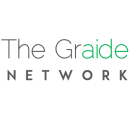Many Chicago tech companies are powered by a desire to do good. Though the technology these companies create and the issues they address vary, what unites them all is a commitment to making a powerful impact in people’s lives. We spoke to eight local companies whose technology is designed to make a difference in the lives of learners, people behind bars, immigrants and more.
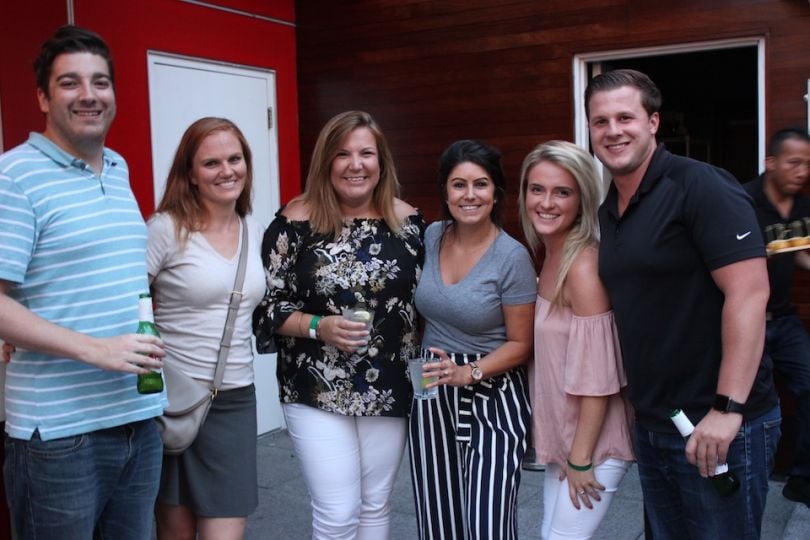
Gesture helps organizations raise more money at events through its fundraising platform, which lets organizers quickly set up mobile silent auctions. In addition to facilitating auctions, the company’s platform also tracks auction data, which Director of Marketing Brandon Stec said helps companies better plan their next events so that they make a bigger impact.
What type of social impact is your technology designed to make?
Our event fundraising technology helps organizations raise money for their causes. We’ve worked with over 3,000 organizations to help raise over $550 million as of March 2018. Before the event, users can upload all silent auction items with a few clicks and easily package items, which allows them to spend less time worrying during the event and more time interacting with donors. After the event, they can easily see data related to how many guests they had, how much they raised and which auction items did the best. This data also helps them plan their next fundraising initiative!
If they’re not raising more money using our software, then we aren’t doing the best we can.”
What motivated your company to address this specific issue?
Before mobile fundraising technology, all donations made at a fundraising event were made by cash or check. It caused long lines, frustrated donors and stressed staff. Additionally, donors who were unable to physically attend the event couldn’t bid on items or make a donation. These factors resulted in limited donations, uncollectible funds and disorganization.
How does a commitment to social impact shape both the products you create and your company's culture?
We’re always thinking about our charity partners first. When we’re developing a new product or making improvements to existing products, we prioritize things that will improve the fundraising efforts of our partners. If they’re not raising more money using our software, then we aren’t doing the best we can.
Our company also participates in volunteer days and community outreach activities. This summer, we had a team pitch in for a day with Habitat for Humanity of DuPage County, and we also participated in a softball tournament benefiting Ronald McDonald House Charities.
Envoy’s platform is designed to make it easier for companies to hire and manage talent from around the world. According to Lindsay Dagiantis, VP of HR, the company’s mission to streamline immigration comes from a belief that both companies and the world are made stronger by people being able to live and work anywhere opportunity beckons.
What type of social impact is your technology designed to make?
We make it easier for employers and workers to pursue those opportunities. Our company is built on a simple idea: Never forget that behind all the applications and case files there are people. We truly care about those people — their hopes, dreams and fears — and helping them realize what’s possible.
Never forget that behind all the applications and case files there are people.”
What motivated your company to address this specific issue?
Envoy was founded in Chicago in 1998 by an immigration attorney who empathized with his clients when it came to the anxiety they and their employees felt throughout the immigration process. This drove our desire to help people navigate the stressful, confusing and incredibly inefficient immigration and visa application process. We make it simple for people to work anywhere in the world by bringing efficiency and transparency to what can be an unbelievably frustrating experience.
How does a commitment to social impact shape both the products you create and your company's culture?
Everyone who works at Envoy shares a passion for immigration — some have even gone through the immigration process firsthand and used our technology. We realize that managing a global workforce goes far beyond visas and work permits. It’s about understanding the complex nuances of today’s global HR environment: Knowing how employees are assimilating into your culture and into their new country, attracting more diverse talent from more countries and helping organizations be ready and able to take advantage of business opportunities around the world.
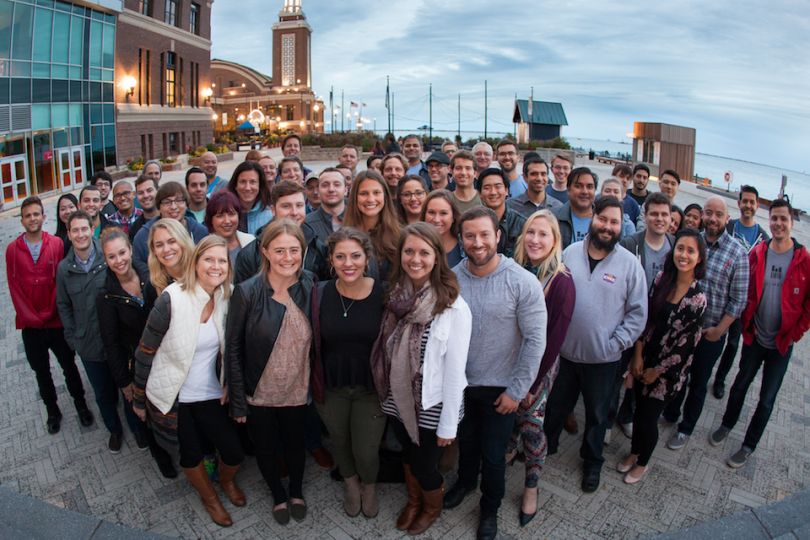
Label Insight uses machine learning and data science to capture and categorize product information, which allows companies to better inform consumers about what exactly is in the products they use and where those ingredients come from. VP of Marketing Kira Karapetian said the company’s mission is motivated by a family health issue the founders’ father faced.
What type of social impact is your technology designed to make?
Americans care more than ever before about the ingredients in the products they use and consume. Using data science, Label Insight is bringing transparency to the food industry through the use of high order attributes which provide context, such as ingredient definitions, properties of ingredients, country of origin, farming practices and the specific diet programs a food qualifies for.
Our mission is to create more transparency within the food, personal care and pet food industries. Beyond that, our Open Data initiative makes our data available to non-profit organizations, universities and research institutions for the advancement of research, learning and change.
Using data science, Label Insight is bringing transparency to the food industry.”
What motivated your company to address this specific issue?
More than a decade ago, the father of our founders, Anton and Dagan Xavier, got sick and had to dramatically alter his diet to avoid certain ingredients. With no easy method to determine which products were safe, Dagan spent hours scouring the shelves at his local grocery store and reviewing the ingredients of each item. The process highlighted the clear need for transparency in the food industry and resulted in the birth of Label Insight.
How does a commitment to social impact shape both the products you create and your company's culture?
We’re driven by a desire for more transparency, and that impacts everything we do, from the products we create to the way we run our business. We take transparency seriously, from weekly all-company meetings that give insight into high-level initiatives, to visibility into each individual’s quarterly goals and how they’re tracking. These efforts build trust and provides a greater understanding of our corporate mission.

Education and training companies use BenchPrep’s omni-channel, cloud-based platform to provide more engaging and enjoyable learning experiences. In addition to helping people study for tests like the GMAT and ACT, CEO Ashish Rangnekar said the company’s tech is also being used to make an impact in the fight against adult illiteracy in the United States.
What type of social impact is your technology designed to make?
BenchPrep’s mission is to help make learning more effective, efficient and enjoyable. We address the needs of today’s learners by incorporating personalized, bite-sized learning and gamification into our enterprise SaaS platform that can be utilized on any device. Our focus on learner success has led to organizations now making it a priority in their learning programs.
ProLiteracy, the nation’s largest adult literacy and basic education non-profit organization, will now be utilizing BenchPrep’s platform to accelerate learning and improve the skills of the more than 36 million adults in the United States who are unable to read, write or perform basic math.
BenchPrep was created to help all learners have an easier, more engaging and less cumbersome way to learn.”
What motivated your company to address this specific issue?
My co-founder, Ujjwal Gupta, and I started BenchPrep almost 10 years ago when I was preparing to take the GMAT. At a time when almost everything in the world was going mobile, the only way I could study was by cracking open a heavy textbook. My frustration led to a revelation: There had to be a better, more effective way to study on-the-go. BenchPrep was created to help all learners have an easier, more engaging and less cumbersome way to learn.
How does a commitment to social impact shape both the products you create and your company's culture?
Our core objective and top priority is positioning learners for success. We incorporate features such as gamification, flashcards, discussion forums and personalized learning pathways to make learning more enjoyable. This leads to increased learner engagement and better outcomes. At BenchPrep, we pride ourselves on having a non-hierarchical company structure. Employees are encouraged to ask tough questions, challenge existing norms and come up with new ideas to ensure we’re meeting the ever-evolving needs of today’s learner.
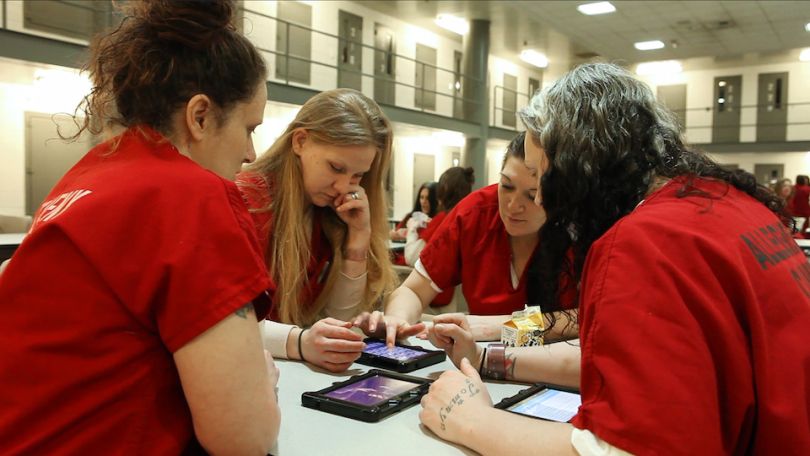
Edovo develops tablet-based educational programs that are designed to help reduce recidivism by giving incarcerated individuals a way to learn vocational and life skills. As a user-centric company, founder Brian Hill said he and his team frequently meet with both prison staff and incarcerated users to ensure Edovo is making the greatest possible impact.
What type of social impact is your technology designed to make?
Edovo is focused on generating positive outcomes for individuals who are impacted by the many detrimental effects of incarceration. Our educational suite is delivered through tablets designed specifically for correctional environments and is structured to provide self-driven learning opportunities through personalized courses and curricula. Our goal is to provide incarcerated users with increased opportunity for choice, allowing them to take advantage of their time to prepare for re-entry and develop job and life skills.
We keep those directly affected by incarceration at the heart of every decision we make.”
What motivated your company to address this specific issue?
My father was a prison educator in California’s Folsom State Prison. Growing up, I witnessed firsthand the difficulties and limitations of delivering successful educational programs to incarcerated populations. While I was at Northwestern University Law School, I designed a small scale trial of alternative television programming for the Cook County Jail. However, we quickly learned that to truly drive engagement, we would have to deliver content in a more personalized manner. We began developing educational tablets that rewarded users with entertainment offerings. We discovered this was an incredibly efficient way to deliver programming at scale while also keeping users engaged.
How does a commitment to social impact shape both the products you create and your company's culture?
We keep those directly affected by incarceration at the heart of every decision we make. Our focus is ensuring that our products deliver a true opportunity for self improvement, provide practical job and life skill development and make correctional environments safer and more efficient for the staff that serve them. What's unique about Edovo is that we are an incredibly user-centric company servicing a population that is incredibly difficult to engage with. We frequently meet with staff and incarcerated users to refine our product strategy so that it is reflective of the population we are servicing and designed to maximize potential impact.
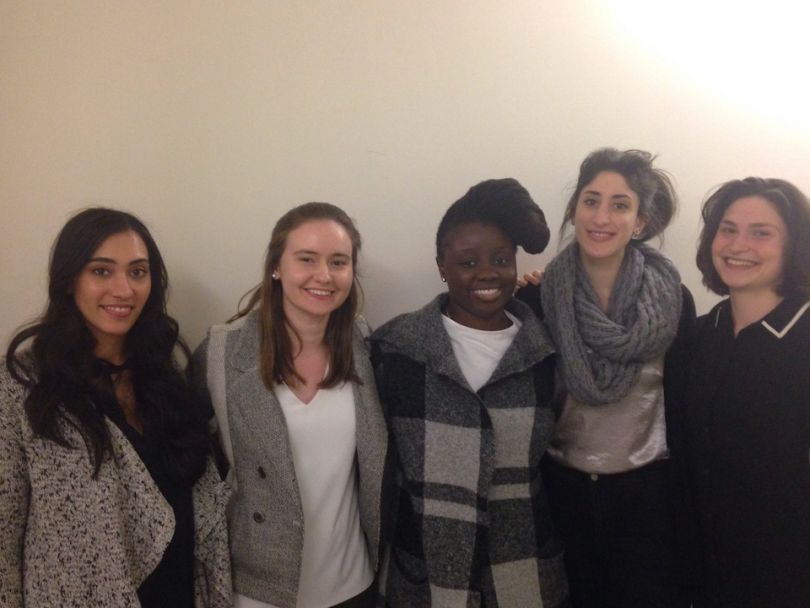
Applying for public assistance can be a complex and stressful process, which is why mRelief is working to simplify and streamline it. Its platform, accessible via the internet or text message, tells users if they qualify for government assistance and then guides them through the application process. CTO Genevieve Nielsen and Executive Director Rose Afriyie were inspired to found mRelief after seeing a presentation at ChiHackNight about the challenges of social service delivery in Chicago.
What type of social impact is your technology designed to make?
Nielsen: We provide an easy-to-use platform that helps low-income Americans find out if they qualify for food stamps and then enroll in the program. There are currently 9 million people who are eligible for, but not receiving, benefits from the food stamp program. This amounts to $13 billion in unclaimed food stamp benefits each year. Enrolling in the program requires filling out a 16-page application, completing an interview and submitting several required documents. Our technology creates an affirming process that streamlines enrollment. Ultimately, we want our technology to ensure that accessing the social safety net never contributes to the already stressful circumstance of poverty.
We want our technology to ensure that accessing the social safety net never contributes to the already stressful circumstance of poverty.”
What motivated your company to address this specific issue?
Nielsen: We emerged from the ChiHackNight community. One night, the city’s Innovation and Delivery Team gave a presentation on the challenges facing social service delivery in Chicago where 10,000 people were eligible for a program but only 400 to 600 people were receiving the benefit. My co-founder Rose Afriyie and I were enrolled in the Starter League web development program at the time and began working on a web platform for families to find out if they qualify for services.
How does a commitment to social impact shape both the products you create and your company's culture?
Afriyie: We have a data-driven approach to SNAP delivery where our users and their time are at the center of our process. We are breaking records through our automated enrollment process, which delivers critical benefits and saves families time. We recently hit two milestones: Our screening tool provided an answer to a family in two minutes and 13 seconds — our fastest result yet. We also broke our record for the highest benefit amount awarded to a family at $504 for a couple and their two children.
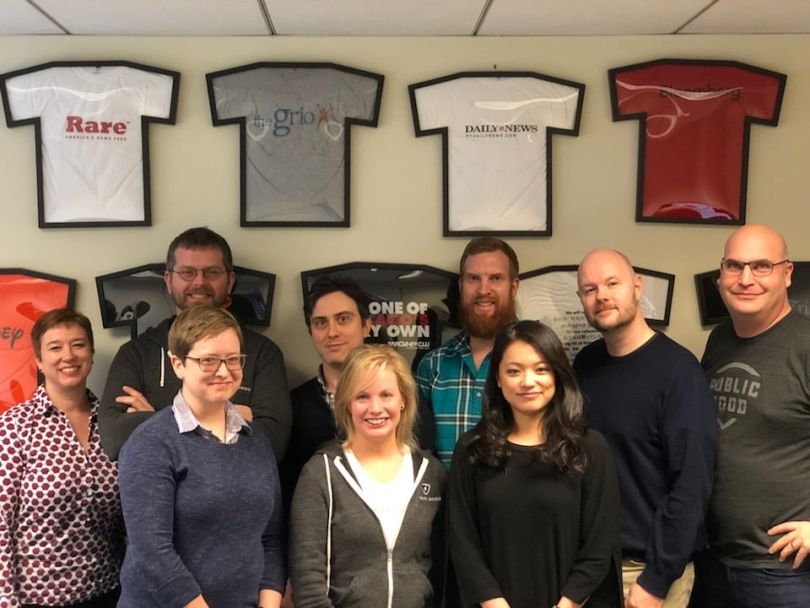
Public Good helps bridge the gap between content and cause with a platform that makes it easier for people inspired by a story to take action. President and co-founder Melissa Anderson said the company’s commitment to connecting people to causes has led to the development of a “rapid response” team that monitors breaking news so the company can make the greatest impact possible in times of crisis.
What type of social impact is your technology designed to make?
Our mission is to empower people to easily take action on the issues they care about the moment they feel inspired. By facilitating action, we can lower barriers and magnify people’s individual impact. We connect news and content with actions people can take to make a difference across causes. Actions people can take range from donating money and volunteering to adopting animals or sponsoring refugees.
By facilitating action, we can lower barriers and magnify people’s individual impact.”
What motivated your company to address this specific issue?
Our founding team came from the tech leadership group at President Obama’s 2012 campaign. During the campaign we saw the massive power of lots of individual actions all pointing in the same direction. We also saw the importance of talking to people about the issues they care about on their terms. Many nonprofits and NGOs do great work to solve important problems, but they still try to engage people when it’s convenient for the organization, not when it makes sense for a supporter. We wanted to turn that on its head.
How does a commitment to social impact shape both the products you create and your company's culture?
Every piece of code we commit, every email we send, and every meeting we have is driven by an unwavering commitment to our mission, which is to help others take action. That’s allowed us to recruit a team that would make any tech company jealous.
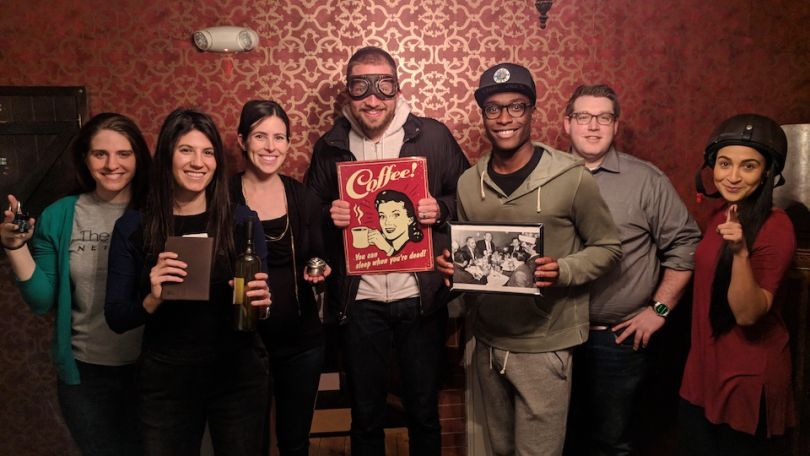
The Graide Network’s platform connects overworked teachers with virtual assistants — all of whom are undergraduate or graduate students pursuing a teaching career — who grade written assignments and provide detailed feedback. CTO Karl Hughes said the company’s two-sided marketplace allows it to make a positive impact on education from multiple angles.
What type of social impact is your technology designed to make?
The best way to build strong writers is to get students writing more often and to provide more personalized, actionable feedback, but grading essays takes a ton of time. Our on-demand grading service helps students receive high-quality feedback on their essays faster and lightens the grading load for teachers. My mom’s a teacher, so I love that we can give teachers more time for all of their other important responsibilities without sacrificing great feedback.
I love that we can give teachers more time for all of their other important responsibilities without sacrificing great feedback.”
What motivated your company to address this specific issue?
We want to improve education, and we know that fast, high-quality feedback deeply engages and motivates students. Finding time for this feedback is a problem that has plagued educators for decades, and we address it by saving teachers up to 88 percent of their grading hours per assignment, making fast, effective feedback a reality for every student. Students are best served when teachers can invest more time in high-impact activities like designing innovative lessons plans, meeting one-on-one with students, collaborating with colleagues and parents and taking on leadership roles at the school.
How does a commitment to social impact shape both the products you create and your company's culture?
From the start, we’ve been committed to serving a diverse range of schools, so we need a diverse team in order to do that. I’ve led engineering teams before, but this is the first time I’ve built a product for K-12 education, so I’ve leaned heavily on the rest of our team to offer insight into the challenges that teachers and students face in choosing and using new technology. Being in touch with the people we serve is inspiring because we get to see the positive impact we make in their lives, and it’s also really helpful when gathering feedback for the product.







